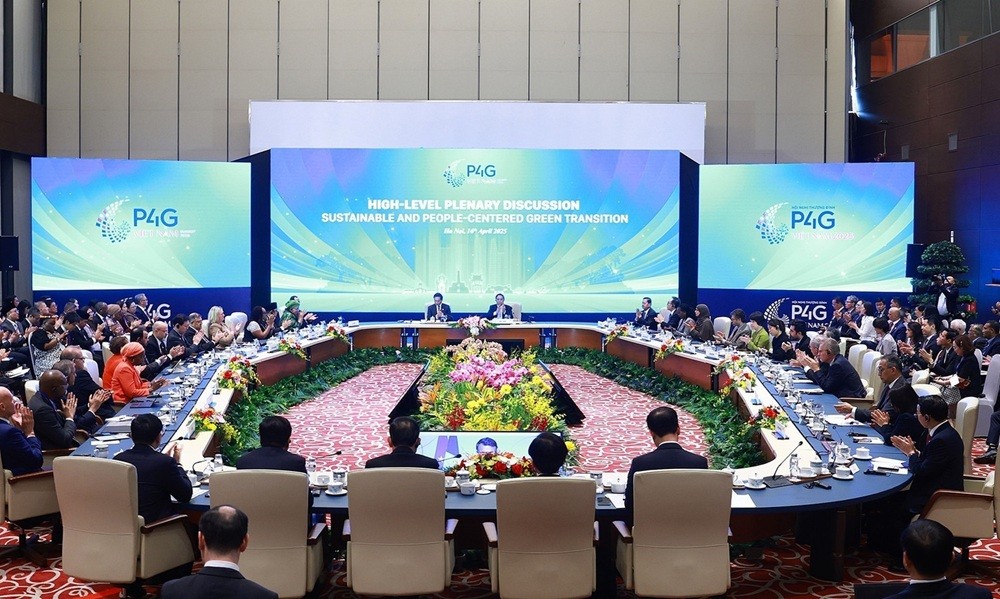Academic pressure is turning children into robots
Director of the Institute for Social Development Studies Khuat Thu Hong spoke to The World and Viet Nam Report newspaper after a student committed suicide due to the pressure of studying.

Ms. Khuat Thu Hong
What are your thoughts following the suicide of a student in Nguyen Khuyen High School in HCM City?
Compassion, anger and powerlessness are my emotions after hearing about the student’s death. I feel powerless to do anything, and angry that I could not do anything to stop it. I am an adult among millions of other adults who unintentionally ignore the cries of young souls, and unknowingly condemn them to sadness for so long that they choose the most tragic way out.
After every case of suicide due to schooling pressure, I get angrier with myself because I cannot change anything.
Are adults also caught in a web of pressure to succeed?
When those adults are obsessed by achievements, they may change pure competitions into vengeful ones.
Việt Nam lacks an effective education system. The country has fumbled with renewing education policy for years, but still lacks a quality curriculum. As a result children do not gain enough knowledge in the classroom and have to take extra classes in their free time. I call it an ineffective education. It’s the key cause of children’s prolonged stress, depression and suicide.
Do the parents take the blame for the problem?
I do not blame the parents because they are also victims of the same education system. Besides, they cannot help taking their children to extra-classes; they must accept it as a way to cope with our flawed education system.
Children didn’t use to have to go to extra-classes; they did not study day and night. Once, there were only a few outstanding students in a class, but people did not see any reason for jealous competition.
More and more families want to send their children to study abroad, and this shows that they reject the domestic education system. Families without the money to send their children abroad must cope with what they have here.
Every parent wants their children to be skilled at English to better integrate into the world. Do some parents put too much pressure on their children, and turn them into studying machines?
Studying any foreign language, especially English, is essential to living in a globalised society. I understand the parent’s concerns, and sympathise with them. But forcing children to revoke their childhood in order to study is the education sector’s fault. If the quality of English training in the classroom was better, then children wouldn’t have to take so many extra classes to catch up.
How can we help the students escape from the pressure?
I believe that changing the dominant educational theory, and renewing teaching methodology is the best way to ease the pressure and improve the overall quality of education.
In the modern day, you can enter a whole world of education with just the click of a mouse. So it is wrong to have children learn by heart, memorise information and write based on models. It would be a better use of the children’s time to teach them research skills, social skills, and let them play in their free time.
Children don’t grow up because of mathematics or chemical formulas. They grow through communication and play. Through this, they gain skills of presenting themselves to others, overcoming failure, challenges and they learn to deal with their emotions. If we don’t address this problem, we will have a generation of robots. We must make sure this doesn’t happen./.
VNF/VNS
Recommended
 National
National
Vietnam News Today (Apr. 22): Vietnam And Laos Promote Parliamentary Cooperation
 National
National
Party Chief Attends Grand Art Performance Celebrating National Reunification
 National
National
Vietnam News Today (Apr. 21): International Troops to March in Vietnam’s Reunification Day Parade
 National
National
Vietnam News Today (Apr. 20): Vietnam, China to Deepen Ties with Strategic Future Vision
 National
National
Vietnam News Today (Apr. 19): UN, Vietnam Step Up Efforts on Cybercrime Convention
 National
National
Vietnam News Today (Apr. 18): P4G Summit in Vietnam - Beacon of Hope for Global Climate Action
 National
National
People must come first to achieve development goals: P4G
 National
National
